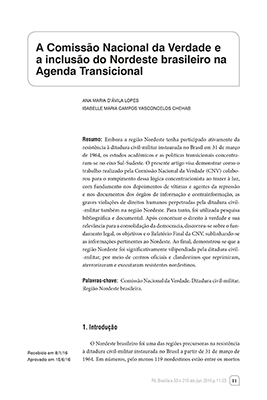O voto obrigatório na democracia brasileira e os princípios de justiça de John Rawls
João Hélio Ferreira Pes
Rafael Bathelt Fleig
Resumo
Este artigo analisa o voto obrigatório à luz da democracia que a Constituição de 1988 visa concretizar, considerando a concepção de justiça de John Rawls, que afirma princípios de justiça que antecedem e orientam a própria Constituição, para responder à seguinte questão: o voto obrigatório instituído pela Constituição brasileira é justo? O método de abordagem foi o dedutivo, buscando-se as suas bases na doutrina e na Constituição, para então se utilizar da filosofia de John Rawls a fim de analisar as virtudes do voto obrigatório. Como procedimento, foi empregado o método histórico e comparativo, extraindo-se da história as justificações para o voto obrigatório para então compará-las com os princípios de justiça de John Rawls. A conclusão é que há uma frágil compatibilidade constitucional do voto obrigatório com o Estado Democrático de Direito, ao mesmo tempo em que a justiça como equidade o considera injusto, quando não irracional.
Palavras-chave
Teoria da Constituição. Teoria da Justiça. Justiça como equidade. Democracia. John Rawls.
Título, resumo e palavras-chave em inglês
THE COMPULSORY VOTING IN BRAZILIAN DEMOCRACY AND JOHN RAWLS’S PRINCIPLES OF JUSTICE
ABSTRACT: This article analyzes the mandatory voting in the light of democracy that the Federal Constitution of 1988 aims to achieve, considering John Rawls’ conception of justice that affirms principles of justice that precede and guide the constitution itself, to answer the following problem: the mandatory voting instituted by the Brazilian Constitution is fair? The chosen approach method was the deductive, searching in doctrines and Constitution the bases of compulsory voting, then using John Rawls’s philosophy to analyze its virtues. As a procedure, it was employed the historical and the comparative methods, extracting from history the reasons for compulsory voting to, then, compare them with John Rawls’s principles of justice. The conclusion was towards the idea that there is a fragile constitutional compatibility between compulsory voting and Democratic State, at the same time where justice as fairness regards it as unfair, if not irrational.
KEYWORDS: CONSTITUTIONAL THEORY. THEORY OF JUSTICE. RULE OF LAW. DEMOCRACY. JOHN RAWLS.
Como citar este artigo
(ABNT)
PES, João Hélio Ferreira; FLEIG, Rafael Bathelt. O voto obrigatório na democracia brasileira e os princípios de justiça de John Rawls. Revista de Informação Legislativa: RIL, v. 55, n. 218, p. 113-139, abr./jun. 2018. Disponível em: <http://www12.senado.leg.br/ril/edicoes/55/218/ril_v55_n218_p113>.
(APA)
Pes, J. H. F., & Fleig, R. B. (2018). O voto obrigatório na democracia brasileira e os princípios de justiça de John Rawls. Revista de Informação Legislativa: RIL, 55(218), 113-139. Recuperado de http://www12.senado.leg.br/ril/edicoes/55/218/ril_v55_n218_p113
